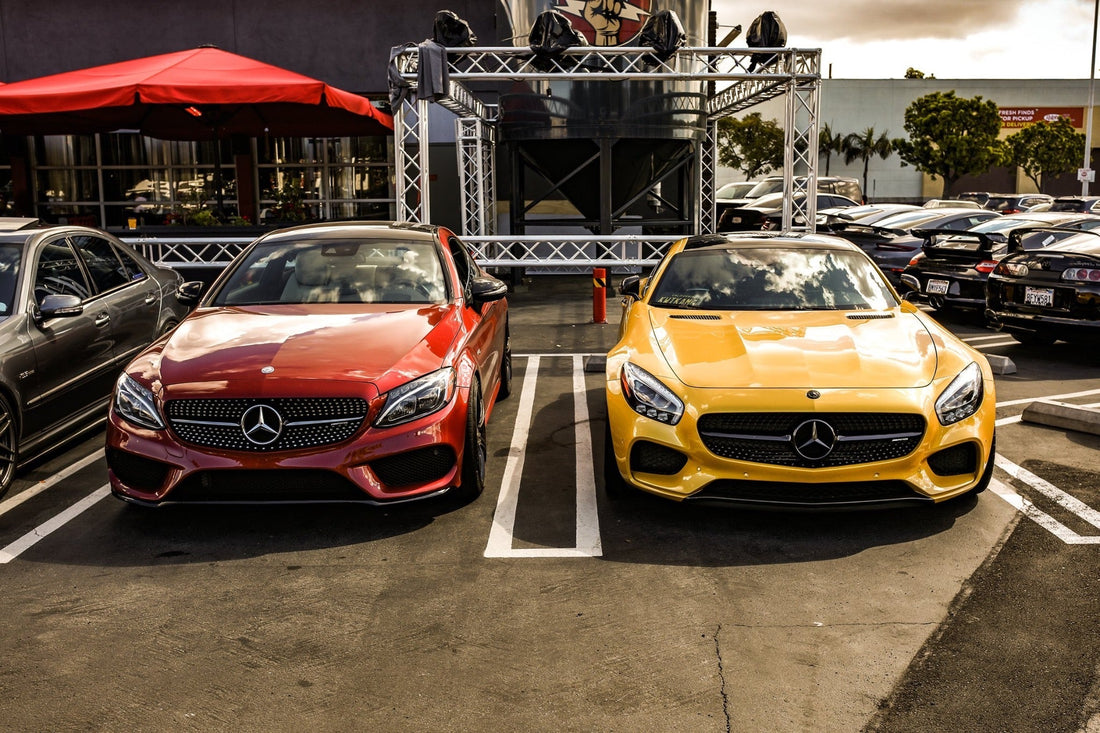
The Handling Edge: Why Mercedes Coupes Are Built to Out-Handle Sedans
Mercedes coupe vs sedan • torsional rigidity • B-pillar • chassis reinforcement • suspension tuning • C205 • C207 • C218 • W209 • C215/C216 • C217 • C238

Quick Answer
Yes — Mercedes-Benz coupes are engineered to feel sharper and more dynamic than their sedan counterparts. The difference isn’t just cosmetic. By removing the B-pillar, Mercedes sacrifices some natural rigidity, then over-engineers reinforcements into the chassis and fine-tunes the suspension to deliver a more agile balance. The result is quicker turn-in, steadier rear stability, and a distinctly sportier driving character that owners notice immediately. Learn which upgrades enhance this further →
Why Coupes Feel Different
- B-pillar deletion & reinforcement: Load paths are re-routed through thicker rockers, gusseted cross-members, and a reinforced rear bulkhead.
- Localized stiffness where it matters: Stronger suspension pick-up points keep geometry stable under hard cornering, improving predictability.
- Coupe-specific suspension tuning: Firmer bushings, retuned springs/dampers, and in some cases a wider track yield crisper yaw response.
- Aero balance: Cleaner airflow and slightly less lift give coupes a calmer, more planted feel at highway speed.
Coupe vs Sedan: At-a-Glance
| Coupe Platform | Sedan Counterpart | Key Coupe Changes | What You Feel |
|---|---|---|---|
| C205 / A205 (C-Class Coupe) | W205 (C-Class Sedan) | Reinforced rear section; firmer bushings/dampers; AMG wider rear track | Quicker rotation, calmer mid-corner |
| C207 (E-Class Coupe) | W212 (E-Class Sedan) | Floor/rear bulkhead reinforcements; coupe damper/spring tune | Tighter transitions, more precision |
| C218 (CLS) | W212 (E-Class Sedan) | Mixed-material stiffening; strategic bracing | Locked-down feel at speed |
| W209 (CLK) | W203 / W211 (C/E Sedans) | Pillarless body; reinforced rockers; subframe tuning | Agile, eager turn-in |
| C215 / C216 (CL) | W220 / W221 (S-Class Sedans) | Heavy local reinforcements for pillarless body | GT stability at high speed |
| C217 (S-Class Coupe) | W222 (S-Class Sedan) | High-strength steel/aluminum reinforcement | Surprising agility for size |
| C238 (E-Class Coupe) | W213 (E-Class Sedan) | Modern reinforcements + coupe-specific calibration | Quick yaw response, planted mid-corner |
FAQ
Are coupes always stiffer than sedans?
No. The edge comes from over-engineered reinforcements in the rear/rockers and improved torsional rigidity combined with sportier suspension tuning. That’s what you feel behind the wheel.
Why do coupes feel more stable at speed?
Reinforced suspension pick-up points keep geometry consistent. Cleaner aero balance helps the car stay planted on the highway.
Can a sedan be made to feel like a coupe?
Close. With alignment, coilovers, sway bars, and bracing, sedans can mimic much of the coupe’s sharper balance.
🔧 Want sharper handling? Check our Handling Upgrades Guide
Bottom line: Mercedes coupes are engineered to out-handle sedans—reinforced where it counts, and tuned for sharper response.